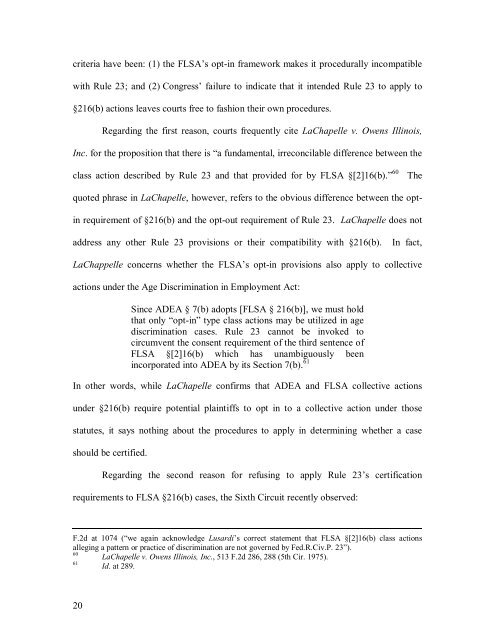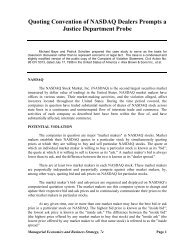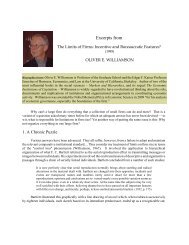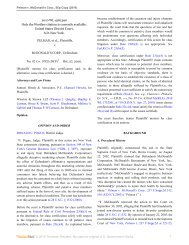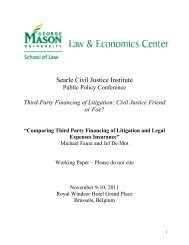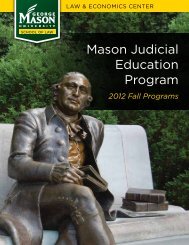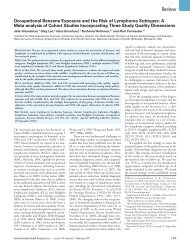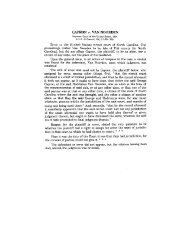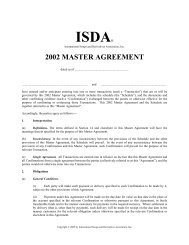Allan G. King, Lisa A. Schreter, and Carole F. Wilder, You Can't Opt ...
Allan G. King, Lisa A. Schreter, and Carole F. Wilder, You Can't Opt ...
Allan G. King, Lisa A. Schreter, and Carole F. Wilder, You Can't Opt ...
- No tags were found...
Create successful ePaper yourself
Turn your PDF publications into a flip-book with our unique Google optimized e-Paper software.
criteria have been: (1) the FLSA’s opt-in framework makes it procedurally incompatiblewith Rule 23; <strong>and</strong> (2) Congress’ failure to indicate that it intended Rule 23 to apply to§216(b) actions leaves courts free to fashion their own procedures.Regarding the first reason, courts frequently cite LaChapelle v. Owens Illinois,Inc. for the proposition that there is “a fundamental, irreconcilable difference between theclass action described by Rule 23 <strong>and</strong> that provided for by FLSA §[2]16(b).” 60Thequoted phrase in LaChapelle, however, refers to the obvious difference between the optinrequirement of §216(b) <strong>and</strong> the opt-out requirement of Rule 23. LaChapelle does notaddress any other Rule 23 provisions or their compatibility with §216(b).In fact,LaChappelle concerns whether the FLSA’s opt-in provisions also apply to collectiveactions under the Age Discrimination in Employment Act:Since ADEA § 7(b) adopts [FLSA § 216(b)], we must holdthat only “opt-in” type class actions may be utilized in agediscrimination cases. Rule 23 cannot be invoked tocircumvent the consent requirement of the third sentence ofFLSA §[2]16(b) which has unambiguously beenincorporated into ADEA by its Section 7(b). 61In other words, while LaChapelle confirms that ADEA <strong>and</strong> FLSA collective actionsunder §216(b) require potential plaintiffs to opt in to a collective action under thosestatutes, it says nothing about the procedures to apply in determining whether a caseshould be certified.Regarding the second reason for refusing to apply Rule 23’s certificationrequirements to FLSA §216(b) cases, the Sixth Circuit recently observed:F.2d at 1074 (“we again acknowledge Lusardi’s correct statement that FLSA §[2]16(b) class actionsalleging a pattern or practice of discrimination are not governed by Fed.R.Civ.P. 23”).60LaChapelle v. Owens Illinois, Inc., 513 F.2d 286, 288 (5th Cir. 1975).61Id. at 289.20


